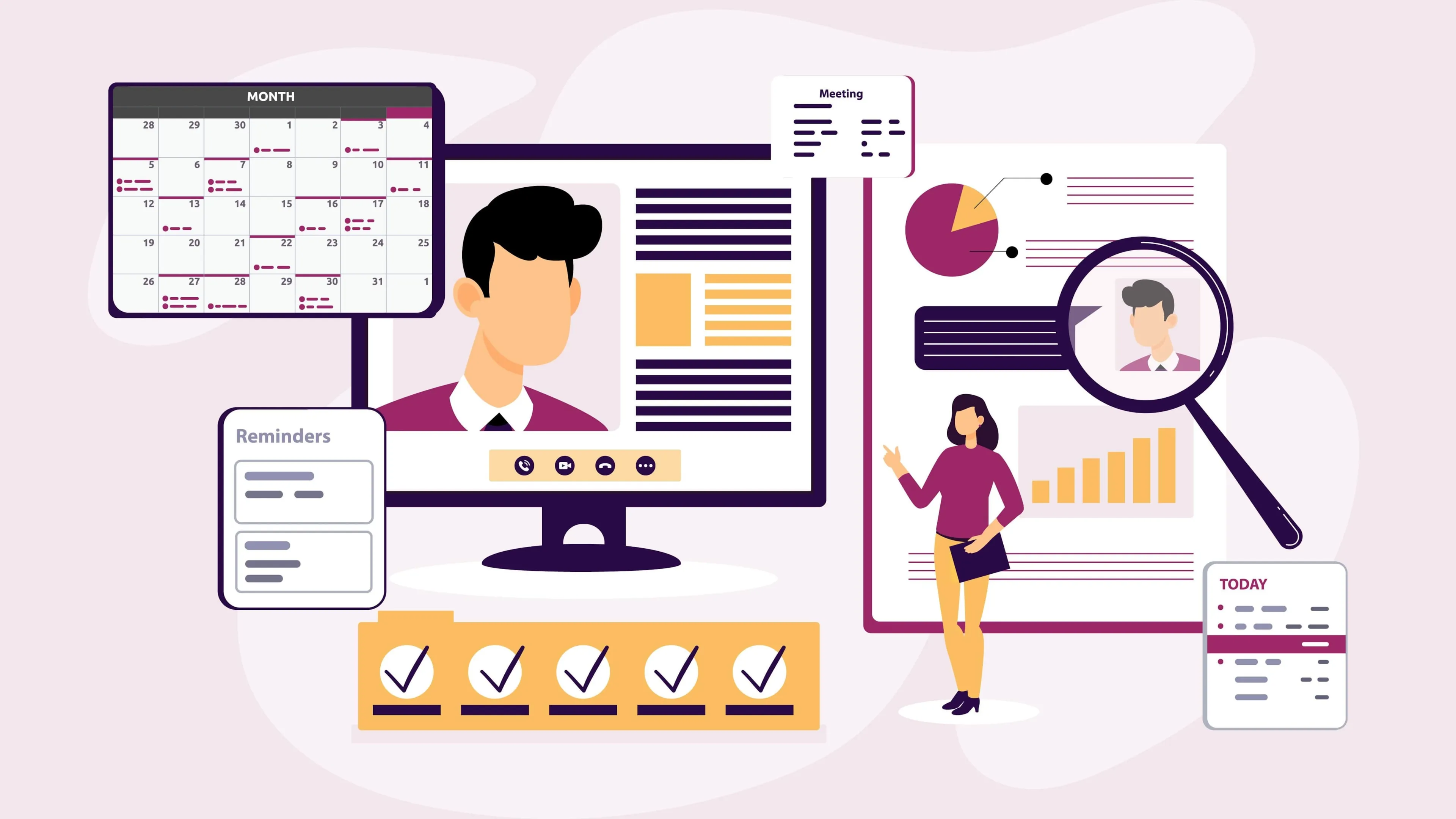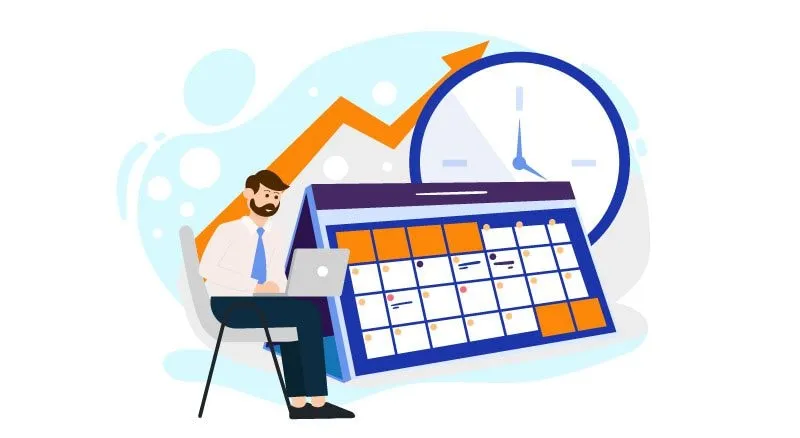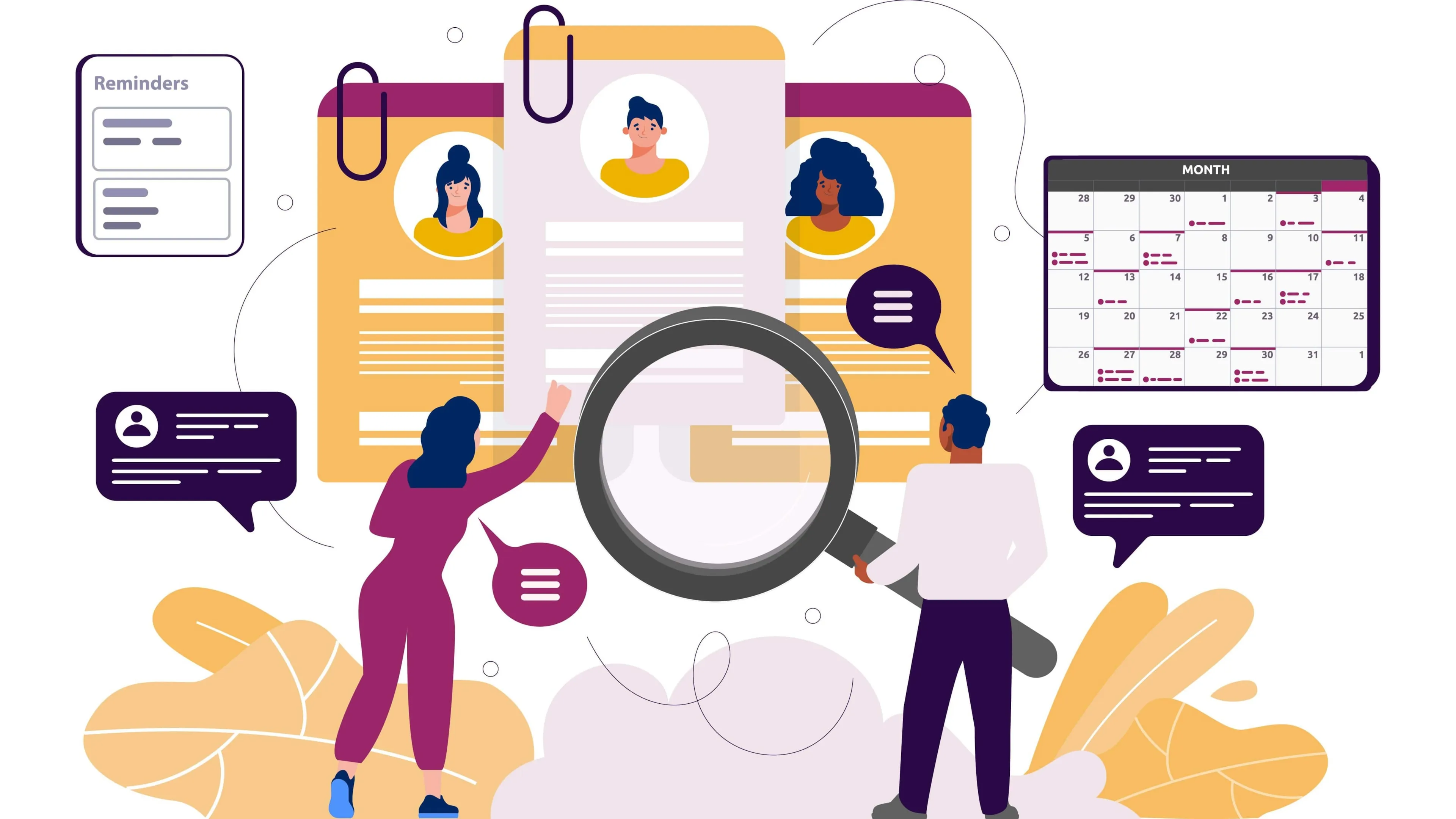Have you ever wondered how businesses turn potential leads into real opportunities? That’s where an appointment setter comes in, they’re the ones who keep the sales process running smoothly by handling the appointment setting process and connecting your sales team with qualified prospects.
In fact, studies show that using effective appointment setting strategies can boost sales success by up to 30%. With their knack for scheduling sales appointments and building relationships, an appointment setter can be your secret weapon for business growth.
Who is an Appointment Setter?

An appointment setter is a key part of the sales process, helping connect businesses with potential customers through effective communication channels. They handle initial contact, like phone calls or emails, to engage potential clients and qualify them as decision makers.
By conducting thorough research, they ensure leads align with the target audience and the company's service offerings. Their primary role is scheduling appointments and managing follow-ups to keep the sales team focused on closing deals.
Using a multi-channel approach, they create opportunities that nurture leads and build key relationships, making them vital for achieving sales goals.
Who Should Use Appointment Setting for Business Growth?

Appointment setting can be a game-changer for many businesses, helping them streamline processes and focus on conversions. Here’s who can benefit:
1. Businesses with Complex Sales Processes
Companies involved in b2b appointment setting often need to connect with multiple decision makers for long-term contracts.
Follow-up meetings are essential to address concerns and finalize deals.
2. Startups and Small Businesses
With limited resources, startups can benefit from cost savings by outsourcing appointment setting services.
It ensures they target potential buyers while focusing on growth.
3. Companies Struggling with Lead Management
Firms looking to convert cold leads or improve their lead nurturing can use this service to warm up and engage prospects.
Helps in addressing pain points and refining prospecting efforts.
4. Sales Teams Aiming to Improve Efficiency
Helps reduce the burden of cold calling and allows sales reps to focus on closing deals.
Streamlines the process of setting appointments and ensures timely follow-ups.
5. Industries Requiring Personal Engagement
Sectors like real estate or financial services, where direct conversations with key decision makers matter, can use other communication channels for effective appointment setting.
Appointment setting offers scalable solutions, making it ideal for businesses aiming to grow efficiently.
How do Appointment Setters help in the Sales process?

Appointment setters are the backbone of an efficient sales process, ensuring every step is streamlined for better results.
By taking charge of key tasks like lead generation efforts, timely follow-ups, and scheduling meetings, they allow sales teams to focus on closing deals. Let’s break down how they make a difference:
1. Streamlining Lead Qualification
Appointment setters manage the lead generation process, ensuring only high quality leads progress in the pipeline.
They conduct initial calls with potential clients, verify their fit with the company's service offerings, and push qualified leads into the sales funnel for better efficiency.
2. Ensuring Consistent Follow-Ups
Consistent communication is vital in sales, and appointment setters handle timely follow-ups to keep prospects genuinely interested.
Their outreach strategies help nurture leads and maintain engagement, ensuring no opportunities are missed.
3. Optimizing Time for Sales Teams
By managing the lead generation efforts and coordinating schedule meetings, appointment setters free up the sales team to focus on closing deals.
This improves the team’s performance and makes the process more productive.
4. Enhancing the Sales Funnel Efficiency
Appointment setters improve the sales funnel by bridging the gap between initial outreach and the sales meeting.
They adapt to the key differences in client needs, ensuring a smooth and personalized experience for prospects.
5. Building Stronger Customer Relationships
With a focus on the primary goal of understanding clients, appointment setters establish trust and build meaningful relationships.
By maintaining a direct line of communication, they enhance customer satisfaction and align with market trends for success.
Why is an Appointment Setter Essential for Your Sales Team?

An appointment setter plays a critical role in streamlining tasks and boosting the effectiveness of your sales team.
Here’s how they make a difference:
1. Reducing the Workload of Sales Reps
By handling initial interactions like process appointment setting and qualifying leads, appointment setters free up sales representatives to focus on closing deals.
This ensures a smoother workflow and allows the team to work more efficiently.
2. Increasing Conversion Rates
Appointment setters ensure prospects are genuinely interested and aligned with the company's service offerings before passing them to the sales team.
This tailored approach leads to higher conversion rates, as the sales team spends time on opportunities with the most potential.
3. Bridging the Gap Between Marketing and Sales
Appointment setters create a seamless transition between marketing efforts and sales activities.
They act as a bridge, connecting qualified prospects generated through proven lead generation strategies with the sales team. This alignment enhances communication and maximizes results.
4. Improving Sales Team Productivity
By managing tasks such as lead qualification and scheduling meetings, appointment setters optimize the sales process.
This improvement allows the team to focus on building relationships and converting leads, ultimately boosting productivity.
5. Improves Overall Team Morale
When the sales team can focus on meaningful interactions rather than repetitive tasks, their morale improves.
Appointment setters reduce unnecessary stress, allowing team members to thrive in their roles and stay motivated.
With their ability to align service offerings, implement process appointment setting, and support proven lead generation, appointment setters are indispensable for creating a high-performing sales team.
What is the Appointment Setting Process?

The appointment setting process is a structured and detailed approach designed to guide prospects through the sales funnel effectively.
It ensures leads are identified, nurtured, and converted into meaningful business opportunities. Here’s how it works step-by-step:
Step 1: Identifying Potential Leads
Every successful appointment starts with finding the right potential leads. Appointment setters focus on conducting thorough research to target individuals with relevant job titles who are more likely to engage.
- Research target demographics and industries.
- Identify decision-makers based on the company’s service offerings.
- Ensure leads show just enough interest to proceed to the next step.
Step 2: Reaching Out to Prospects
The first interaction is key to building rapport. Appointment setters initiate contact through emails, phone calls, or other communication channels to present the company’s value proposition.
- Craft personalized messages to address specific needs.
- Use clear and concise communication to generate just enough interest in the product or service.
- Establish trust and ensure prospects understand the benefits of engaging further.
Step 3: Qualifying Leads
Not every lead is a good fit, so qualification is crucial. Appointment setters evaluate prospects to determine their alignment with the company’s goals.
- Ask targeted questions about the prospect’s challenges and goals.
- Confirm whether the lead fits the criteria for your service offerings.
- Disqualify leads that lack decision-making authority or interest.
Step 4: Scheduling Appointments
Once a lead is qualified, the next step is to schedule a meeting. This involves finding a convenient time for both parties.
- Coordinate schedules using tools like calendars or CRM software.
- Send confirmation emails to secure the agreed time.
- Ensure the meeting aligns with the prospect’s preferences and company objectives.
Step 5: Confirming Appointments
Confirmation ensures a high attendance rate and keeps both parties prepared.
- Follow up with a polite reminder before the appointment.
- Reiterate key points of the discussion to maintain interest.
- Provide additional resources or materials if needed.
Step 6: Providing Feedback to the Sales Team
To set the sales team up for success, the appointment setter shares insights about the lead.
- Share specific details about the prospect’s needs and challenges.
- Highlight their key motivators and value proposition that appealed to them.
- Ensure the sales team has full context for a personalized pitch.
Step 7: Updating CRM Tools
Accurate record-keeping is essential for tracking progress and future follow-ups. Appointment setters update CRM systems with detailed notes.
- Log the lead’s contact information, job titles, and preferences.
- Record outcomes of meetings and next steps.
- Keep the database updated to avoid duplication or missed opportunities.
By following these steps, the appointment setting process ensures a smooth transition from initial contact to meaningful business conversations.
This structured approach not only builds trust and efficiency within the sales pipeline but also contributes significantly to appointment setting success, driving better outcomes and enhancing overall sales performance.
What Skills Should an Appointment Setter Have?

1. Strong Communication Skills
Clear and concise communication is crucial. An appointment setter must convey the company’s message effectively while keeping the conversation engaging and professional.
2. Active Listening Abilities
Listening is as important as speaking. By paying attention to what prospects say, appointment setters can understand their needs and respond appropriately, making the interaction meaningful.
3. Time Management and Organization
With multiple leads to handle, an appointment setter must manage their time well.
They need to prioritize tasks, schedule meetings efficiently, and ensure no opportunities are missed.
4. Persuasive and Negotiation Skills
An appointment setter should be able to persuade prospects to consider the company’s offerings and negotiate meeting times that work for everyone involved.
5. Proficiency in CRM Tools
CRM tools are vital for tracking interactions and maintaining records. Appointment setters should know how to log data, schedule follow-ups, and retrieve information quickly.
6. Adaptability to Different Client Needs
Not every client is the same. Appointment setters must adapt their approach to suit various industries, personalities, and requirements, ensuring a personalized experience.
7. Basic Product or Service Knowledge
Understanding the company’s products or services is essential. This allows appointment setters to answer initial questions confidently and create interest among prospects.
8. Attention to Detail
Every interaction matters. An appointment setter must ensure all information is accurate, from contact details to scheduled times, preventing errors that could disrupt the sales process.
How to Choose the Right Appointment Setter for Your Business?

Selecting the right appointment setter is critical to ensuring the success of your sales process.
Here’s how you can make the best choice:
1. Define Your Business Needs
Start by identifying what your business requires. Determine whether you need someone for lead generation, appointment setting, or a mix of tasks.
Clarifying your expectations helps you find a candidate who fits your specific goals.
2. Evaluate Relevant Experience
Look for candidates who have prior experience in similar roles. Those familiar with appointment setting services or b2b appointment setting bring a better understanding of the challenges involved.
3. Assess Their Industry Knowledge
A good appointment setter should understand your industry and audience. Familiarity with your service offerings and the ability to engage decision makers is an added advantage.
4. Test for Cultural Fit with Your Team
Cultural alignment ensures smoother collaboration. Choose someone who shares your company’s values and can adapt to your team dynamics.
5. Check Their Track Record with Leads
Review their past performance. Strong results in proven lead generation or scheduling sales appointments indicate their ability to handle the role effectively.
6. Conduct Role-Specific Skill Tests
Test for essential skills like communication, organization, and adaptability. Include scenarios that reflect real-world challenges in process appointment setting.
7. Look for a Results-Driven Mindset
An ideal appointment setter should be motivated by outcomes. Look for individuals who prioritize achieving appointment setting success and consistently meeting targets.
8. Ensure Flexibility and Availability
Flexibility is vital in handling prospects across different time zones or industries. Make sure the candidate can adapt to your scheduling needs without compromising on quality.
By following these steps, you can select an appointment setter who aligns with your business needs, ensures smooth operations, and contributes to measurable growth.
Conclusion
An appointment setter is like the behind-the-scenes hero of your sales process. They take care of the groundwork, connecting with prospects, scheduling meetings, and keeping everything organized, so your team can focus on the real action.
Whether you’re just starting out or running an established business, having someone who can handle these tasks makes a huge difference.
It’s not just about saving time; it’s about creating meaningful connections that lead to lasting success. Think of it as setting the stage for your team to shine!

.webp)



.jpg)

.jpg)
